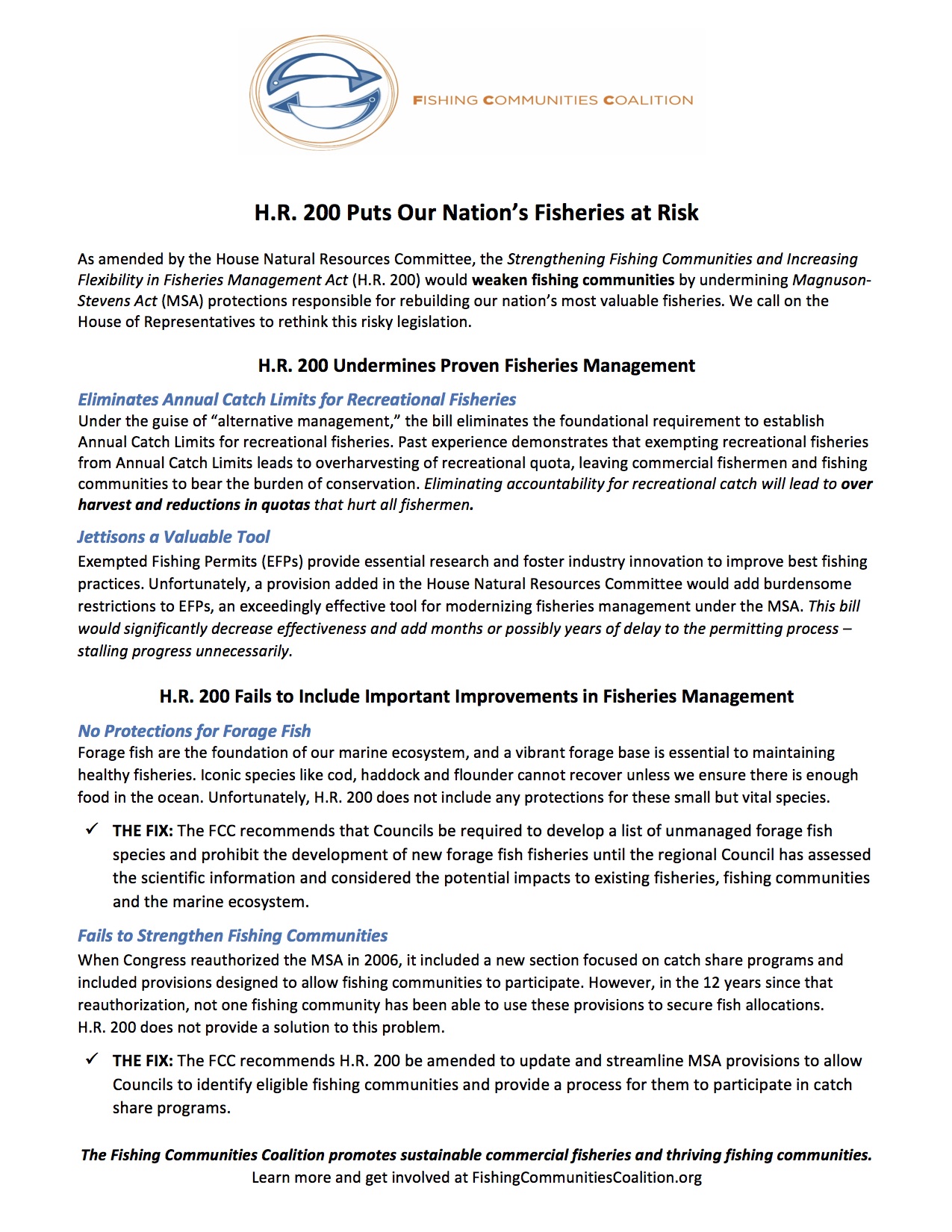FCC: House Bill Latest Effort to Gut Sustainable Fisheries
Commercial Fishermen Oppose Reckless Assault on Science-Based Fisheries Management as House Moves Forward with Magnuson-Stevens Overhaul (H.R. 200)
Washington, DC – Members of the Fishing Communities Coalition (FCC) expressed their strong opposition to H.R. 200 as the U.S. House of Representatives prepared to vote this week on deeply flawed legislation that would weaken core provisions of America’s primary marine fisheries law, the Magnuson-Stevens Fishery Conservation and Management Act (MSA), in a misguided attempt to provide recreational fishermen more access at the expense of commercial fishermen.
In a letter to congress, the members of the coalition of community-based, small-boat, commercial fishing organizations from Maine, Cape Cod, the Gulf of Mexico, California, and Alaska outlined their objections and urged members to vote no on H.R. 200, which would revise and reauthorize the MSA through 2022.
“By gutting science-based fisheries management, H.R. 200 imperils our fish, fishermen, and fishing communities in Maine and across the country,” said Ben Martens, Executive Director of the Maine Coast Fishermen's Association. “This anti-science, anti-sustainability bill discards core provisions of the MSA, thereby dramatically weakening it and putting the future of our fishing communities at risk in the process.”
“Simply put, clear evidence points to the fact that the Magnuson-Stevens Act is working,” said Eric Brazer, Deputy Director of the Gulf of Mexico Reef Fish Shareholders’ Alliance. “It would be a major mistake to turn back the clock and weaken the protections responsible for rebuilding our nation’s most valuable fisheries, including American red snapper in the Gulf of Mexico. Eliminating accountability for recreational catch could lead to unsustainable fishing practices that would hurt all fishermen and put our small family businesses in harms way.”
“This is the latest in a series of failed efforts to unwind the successful science-based fisheries management framework that has rebuilt America’s marine fish stocks, benefiting coastal communities and seafood consumers,” said Dwayne Oberhoff, Executive Director of the Morro Bay Community Quota Fund. “This deeply flawed bill would undermine key research and industry innovation on best fishing practices by adding months or possibly years of delay to the Exempted Fishing Permits (EFPs) process – stalling progress unnecessarily.”
In the FCC’s letter to congress, the coalition noted that this is the latest in a series of failed efforts to gut the MSA:
"This is the third Congress in which the Natural Resources Committee has attempted to enact this bill. Although this legislation passed the House during the 114th Congress, it was never taken up by the Senate due to its contentious nature. Meanwhile, since this bill’s first introduction in 2014 and subsequent failed efforts to enact it, the number of rebuilt fish stocks has continued to increase and overfishing in United States waters has been virtually eliminated under the current MSA framework. These remarkable successes would not have been possible had any iteration of this anti-conservation bill had been signed into law."
Additional information on H.R. 200 and the Fishing Communities Coalition’s objections to the legislation can be found here.






